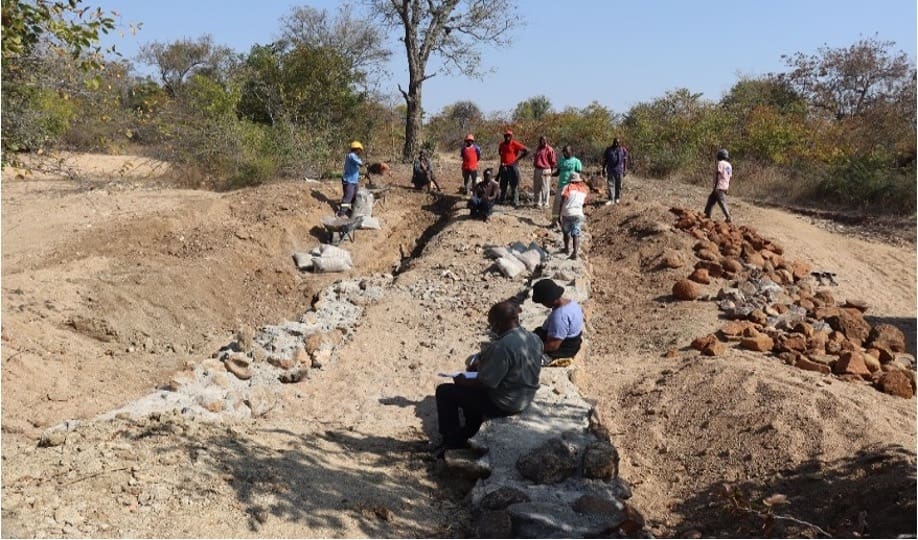Community Focal Point Persons (CFPP) become Agents of Transformation
The village head also indicated, “Once the bridge is completed in November , our work will benefit the whole community and open an opportunity for other works like the construction of a dip tank and a clinic.” Netsai adds, “Takunda has given us a grounding empathy. It helped us to see the reality and look beyond our narrow interest. We are now agents of community transformation”.
In Ward 15, Buhera district, USAID Takunda conducted a Training of Trainers (TOT) on Gender-Sensitive Climate Vulnerability & Capacity Analysis (GCVCA).
Written By: JOSHUA BHUZA and JULIET MADHUKU
Upon completion of the three-day course, the community focal point persons completed two assignments: cascading the training in their clusters and carrying out collective activities as a community as informed by Ward 15’s Disaster Risk Management (DRM) plan developed during the training.
Netsai Zera (48), a mother of three from Sengejira Village and a graduate of the training, met over 50 men and women, including the youth, and successfully cascaded what she learned. Empowered and mentored by Netsai, the community prioritized the maintenance of the Sengejira-Ndongwe road, which is a four-kilometer stretch. Road maintenance included cutting and clearing vegetation on both sides to ensure good visibility, cleaning the road drainage systems, and patching holes. These changes inspired an overwhelming response from all community members, including even those not a part of Takunda’s programming.
Communities took part in the collective work by offering resources, including labor and materials. The construction activities went as far as Maregerere, a central point for three villages: Sundirai, Kwarire, and Dzenga. Netsai said, “If you change one individual’s mindset, it will repeat itself within the community.” This motivated them to continue working and moving forward with the construction of the Maregerere Bridge.

AUGUST 05, 2022: Sengejira- Ndongwe road maintenance works that included cutting and clearing vegetation on both sides of the road to ensure good visibility, cleaning of road drainage systems to reduce the accumulation of water in the road as patching of holes. © Joshua Bhuza/ TAKUNDA RFSA
The communities surrounding the bridge faced transportation challenges, as cars could not cross over to Kwarire and Dzenga villages. Without a bridge, buses ply that route, forcing villagers to take longer routes. Children are very vulnerable to drowning during the rainy season as they cannot cross the flooded river on their way to school.
Dr. Chiduku, a veterinary doctor from the area willing to assist but with no opportunity, donated 200 bags of cement and promised to source other materials from the diasporas. He said, “I believe in social services… I would like to deliver programs that would enhance the lives of my community”. The communities now work three days a week, and the village head, Mr. Sundirai, in his late 80s, said, “I feel that my presence as an old man motivates the young to work hard and construct what has been historically a broken bridge, and this will help to join the three communities.”

AUGUST 05, 2022: Villagers from Sengejira take a short break at the bridge construction site. The bridge will connect three villages, Kwarire, Sundirai, and Dzenga, and will reduce hazards such as children drowning on their way to school. © Joshua Bhuza/ TAKUNDA RFSA
The village head also indicated, “Once the bridge is completed in November , our work will benefit the whole community and open an opportunity for other works like the construction of a dip tank and a clinic.” Netsai adds, “Takunda has given us a grounding empathy. It helped us to see the reality and look beyond our narrow interest. We are now agents of community transformation”.
